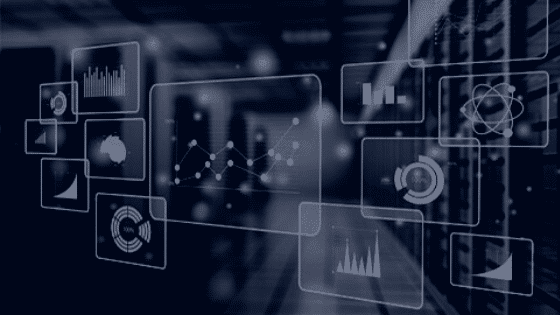The Chief Product Officer (CPO) has emerged as a powerful force in today’s business world, contributing to strategy development, product innovation, and, to an extent, go-to-market. Product leaders have a hand in mission-critical business initiatives with a focus on deeply understanding the minds of the customers they serve. The expanding scope of their roles has many CPOs asking, “What’s next in my career?”
In recent years, more and more product leaders have made the jump to entrepreneurship. We explored this path from CPO to founder/CEO with a virtual panel discussion with:
-
- Sanish Mondkar, founder and CEO of Legion, which provides labor-management solutions for companies with large numbers of hourly workers. Prior to starting Legion, Sanish was chief product officer at SAP, where he oversaw procurement and supply-chain products. Before that, he was CPO at Ariba until its acquisition by SAP.
- Elliot Shmukler, co-founder and CEO of Anomalo, which identifies and helps prevent issues that can negatively impact the quality of mission-critical data used by a business. Previously, he was chief growth offer at Instacart, and before that ran product teams at eBay and LinkedIn.
- Donna Boyer, CPO of Teladoc, a leading provider of virtual healthcare services. Previously, she led product development at Stitch Fix and the host platform of Airbnb.
You can see the full discussion on YouTube with the following highlights from the discussion.
Most companies have what I call the founding myth – some catalyst that led the founder to step away from a big job and venture out to start a company. What inspired each of you to make that move?
(6:40 on the recording)
Elliot: My co-founder Jeremy Stanley and I worked together at Instacart, which is an intensely data-driven company. Even though they had all the best tools and all the best people, we were surprised by the number of episodes where the quality of data impacted our work. So, the inspiration was to develop a tool that would instantly spot problems with data and alert the user.
Sanish: After I left SAP, I spent six months doing nothing, which was great. During that time, I took a drive across country. During that trip, I noticed “for-hire” signs everywhere. At the same time, we were hearing about workers not making enough money to have a basic livelihood. So, if people are looking for workers and if workers can’t find enough work to make a decent living, there’s a broken picture. It turns out that a lot of these businesses operate on very thin margins, and they don’t have the sophisticated tools to schedule employees optimally in a way that employees are going to be happy with the flexibility and the number of hours. This was the problem: employees wanted flexibility and a better experience; employers were struggling with efficiency, productivity, and turnover. I thought that technology could be applied to improve the experience of businesses and the lives of workers. This was the dominant factor that led to the founding of Legion.
Donna: I decided to change jobs in the summer of 2020, which was a really dark time with the pandemic raging. It was obvious that health equity was a significant problem. There had been moments in my life where I’d wanted to get into healthcare, and I finally decided, if not now, when? But before I founded a company, I wanted to make sure I understood all the ins and outs, which would allow me to have the biggest impact possible. So, I joined Teladoc. I absolutely made the right decision to be able to impact things at scale and to give many more people access to healthcare. To make the system less scary and more accessible was really what motivated me. So, whether you’re founding a company or leading product in a larger company, it’s that passion and curiosity for solving the problem that drives you.
One of the common themes here is that product is a great stepping stone into the role of founder and CEO. It prepares you extremely well. But at the same time, running a company has a much broader set of responsibilities. How did you learn to manage all the functions beyond product and what experiences in your previous career have been most valuable in being effective in the CEO role?
(19:30 on the recording)
Sanish: The key word in what you just said is “learn.” It is important to approach the CEO role with the mindset there is a lot to learn. One thing product leaders will attest to is that the learning never stops. As a product leader, you are responsible for seeing around the corner, so product leaders are already tuned into forward-looking learning. Just the ability to learn at that scale translates well. And I have always surrounded myself with people who are subject-matter experts. I partner with them on the product vision and company strategy.
Elliot: I agree with Sanish that you must continue to learn and surround yourself with great people. I got some great exposure in my previous roles, largely because product touches so many pieces within an organization. At Instacart, we would be in meetings with the CFO talking about the detailed accounting of our profitability on every order. I would go on sales calls to grocery retailers. I would read the contract we were about to sign and be on the call with the lawyers analyzing what was going on because often it had impact on product. It was committing us to certain SLAs and certain feature developments in the future. So, it gives you some great exposure for when you have to manage those functions as CEO.
Donna: I try to connect with both customers and people in the organization. What are the gaps? What are the needs on the sales side? When I initially did B2B, it was hard for me to be a step away from the product. You need customer feedback to understand whether your product is good or not; whether you have a good market fit. To know what makes it possible for your sales team to sell, you must think about the product holistically. So, I make a concerted effort to have empathy both for the sales team and for the customer.
It is important to approach the CEO role with the mindset there is a lot to learn. As a product leader, you are responsible for seeing around the corner, so product leaders are already tuned into forward-looking learning. -Elliot Shmukler
One of the commonalities between C-level roles is that typically there’s no one else at the company who’s an expert in what you do. So as a CPO, you may go to the CEO for general advice and coaching, but they’re not going to tell you how to run products. Donna, what sort of coaching or mentorship do you seek out as CPO?
(32:15 on the recording)
Donna: One of the best things about being CPO is that I have peers I can reach out to. There are a lot of product people who are now CEOs, GMs, or CPOs. You can ask them how they have dealt with situations like the one you’re facing or can suggest a resource that can help. It’s important to make sure that you are continuously learning; that you’re open to what the next evolution in product might be. Reaching out to others has helped me quite a bit.
Let’s address a question from the audience, Donna. It’s about disagreements between C-level executives and how the CEO makes decisions when there’s dissent among the leadership team.
(51:45 on the recording)
Donna: One of the most important things is the relationship with your CEO. There are going to be CEOs that are more product-focused and ones that are less product-focused, and it’s important to know that going in, so you understand the nature of the change you need to lead. At some point, most founders will get pressure from the board about company growth, and there’s a danger that you’ll lose that initial founder vision. The CPO’s role, then, is to carry that vision forward and chart the next horizon. It’s very much an influence role. CEOs can’t just direct people to do things; there has to be a level of buy-in for things to be carried out with conviction and commitment. If you’re bringing in the right data, if you’re bringing in the right customer focus, the decision will usually make itself. I could count on one hand in 30-some years how many times the CEO has said, “Sorry, I gotta make this call.” Usually, if you do it well, it’s not about committee; it’s about synthesis. And good synthesis leads to great product decisions.
If you’re bringing in the right data, if you’re bringing in the right customer focus, the decision will usually make itself. -Donna Boyer
A lot of product leaders daydream about founding a company. It’s only natural. Now that you’re a couple years into the role of founder/CEO, what’s been the best part and what’s been your least favorite part?
(27:45 on the recording)
Elliot: I think my best part and worst part are the same. The best part is that you get to be a part of everything. Something that always annoyed me in various product roles was that although my exposure was very broad, I didn’t get to make decisions in other areas where I would sometimes disagree with the decision that was made. What’s great about the CEO role is that you can make all the decisions, or you can set up things where you’re involved. But that’s also the worst part. Because if something is broken, it’s ultimately up to you to fix it. You can only complain to yourself about things that are not going well. It puts the onus on you to fix things that are broken and keep an eye out for them.
Sanish: As a product leader, there were many things under my control, but also things where I was a couple layers away. As a founder, it’s been very satisfying to be able to put the picture together the way you think it needs to be. There are downsides, of course, because sometimes things will not work out and then you take the blame. One thing that was challenging for me early on was to appreciate how long things take. At a large company like SAP, there were a lot of resources available. Big companies may not always move fast, but when they do act, they can have a large impact. When you start from scratch, you have to build those resources, and for a period of time that was very challenging for me. But looking back, I would do the same things I did. So, it’s more of a matter of awareness rather than a hindrance in any way.
Every aspiring founder has an idea for a company, but they’re only able to pursue it if they can raise money. And that initial round of funding is often really intimidating. What was the seed-round process like for you?
(34:50 on the recording)
Sanish: The most important part was talking to a lot of prospective customers and employees. My conviction level was pretty high, and I had already hired a couple of people to start building the product. One advantage that product leaders starting companies have is that it’s generally not as issue whether they can build products. I didn’t have to spend much time convincing people that I can build products. The questions were all about the viability of the idea: is there a market for it; is the timing right? I was fortunate to have a lot of early-stage interest from companies, so I was able to partner with a couple of firms to get the seed round. My advice to new founders is to be aware of what your strengths and weaknesses are, and what objections you might face. Do some work to show that you have thought about this and that you have a perspective you believe in.
Every time I would meet someone, I would ask them who else should I meet? And generally, folks are very helpful. That’s how I met my first customers. It’s important in the early stages to build a network of people who one day might use your product or join your company or maybe invest. That is a super-productive way to spend your time.
Elliot: My story was similar. We had a great conception of the problem we were trying to solve because we had faced it ourselves. And we had a demo of how we were going to solve it. Then it was exactly as Sunish described: we went to our network. This is why it’s helpful throughout your career to meet people, go to events, and participate in the community We were very fortunate that we were experienced. Anyone we touched in the VC community through our network took the meeting. They didn’t always understand what we were talking about or what our product did, but they almost always gave us feedback. Very often, they introduced us to potential customers that were either portfolio companies or folks who gave us an opportunity to refine our pitch. Our problem statement stayed the same, but we learned to also answer the question of how big a business this was going to be.
My advice to new founders is to be aware of what your strengths and weaknesses are, and what objections you might face. Do some work to show that you have thought about this and that you have a perspective you believe in. -Sanish Mondkar
Can you share something meaningful that happened recently in your role as a founder/CEO.
(43:25 on the recording)
Elliot: I’ve been really pleased at some of the executive hires we’ve made recently. Every day I see how the executives are pushing ahead, knocking over obstacles, and making things happen. I can compare that to some executives that we may have mis-hired in the past that weren’t doing that and I had to get very involved in what they were doing. We’ve had some new executives start in the last few months, and it’s been amazing to see them ramp up and push their area forward.
Any advice you have for the heads of product that are interested in becoming founders?
(57:50 on the recording)
Elliot: If you want to start a company, I would say just do it. Especially if you’re in Silicon Valley or connected to the tech community. It’s pretty risk-free, right? If it doesn’t work out in a couple of years, you can get something like your old job back. Meanwhile, you’re going to have a great adventure and you’re going learn a ton. And if you end up coming back to a regular job, you’re going to come back better. As we have pointed out before, there’s such a huge support network in the technology community that even if you feel you don’t know something, there are people who will help you.
Sanish: I completely support what Elliot said. Just take the first few steps. Don’t worry about what comes after that. No founder journey is exactly the same. It’s essentially problem-solving and making progress. So, if you’re passionate about something, don’t worry that you don’t know sales or marketing or any of the things that you haven’t been a part of before. There is a support system out there that can guide you. And if at some point you don’t like what you’re doing, if it’s not for you, it’s easy to go back to where you were with a ton of new experience, which will make you a better product leader.




